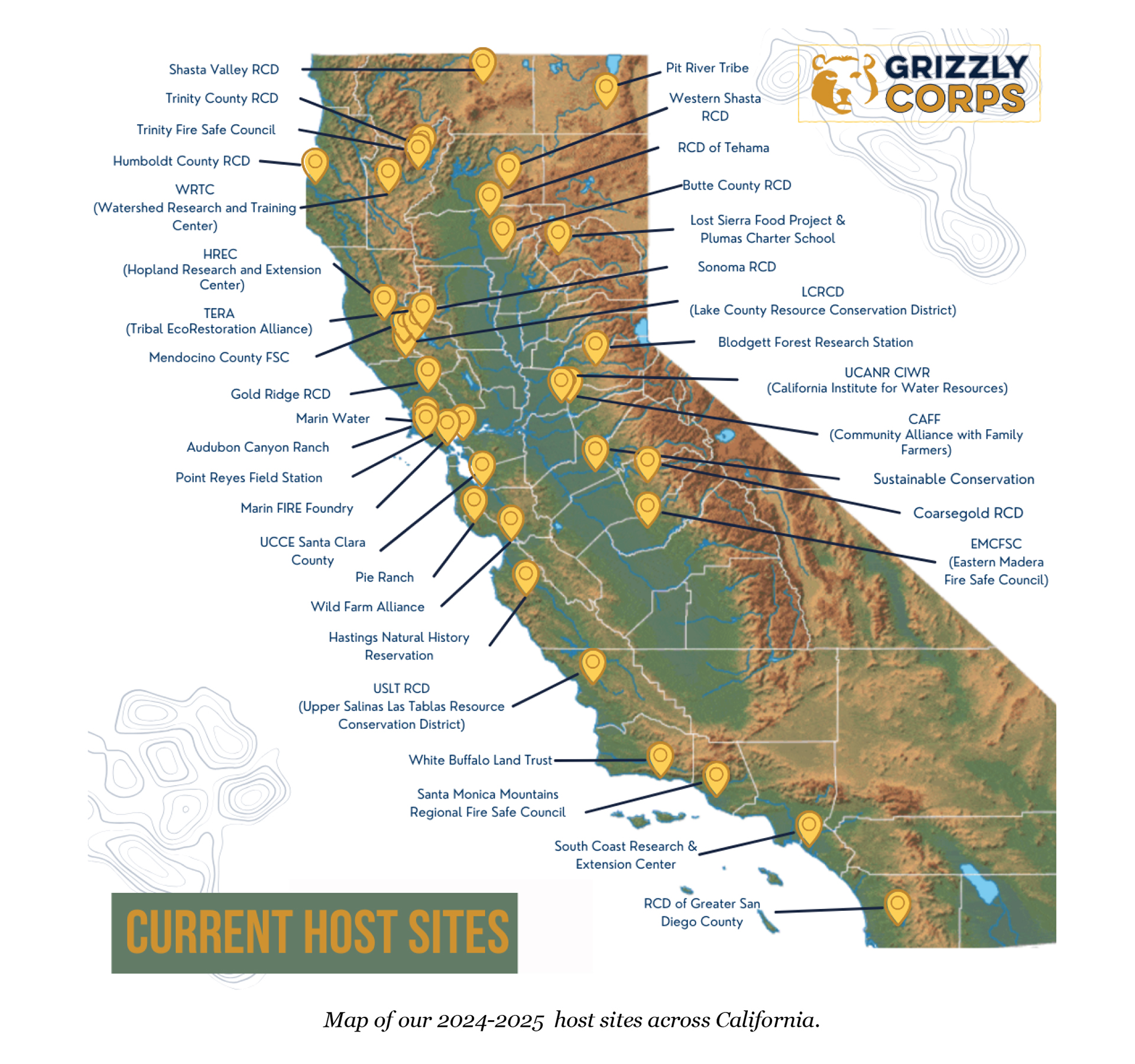GrizzlyCorps Aims to Stay True to Its Mission Fighting Climate Change
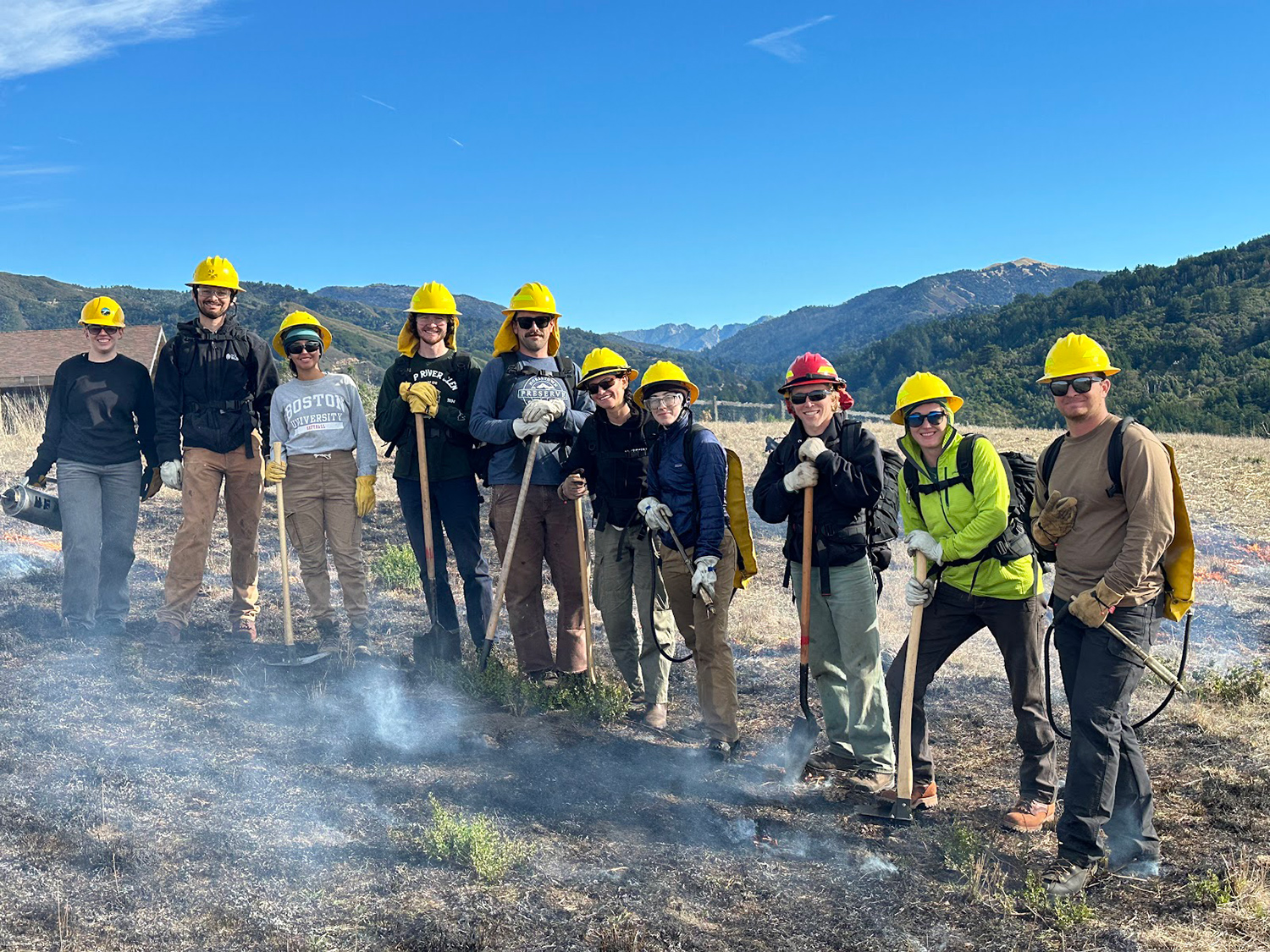
In under five years since its launch, GrizzlyCorps has climbed to great heights to help California’s rural communities build wildfire resistance, healthier forests, and more sustainable agriculture and land management.
The program — created by the Project Climate Program at UC Berkeley Law’s Center for Law, Energy & the Environment in partnership with California Volunteers under the federal government’s AmeriCorps service initiative — has placed more than 150 volunteer fellows around the state, forging a direct connection between the university and state taxpayers.
GrizzlyCorps fellows commit to an 11-month service term and work with cooperative extensions, resource conservation districts, research stations, tribes, nonprofits, local government agencies, and other community partners.
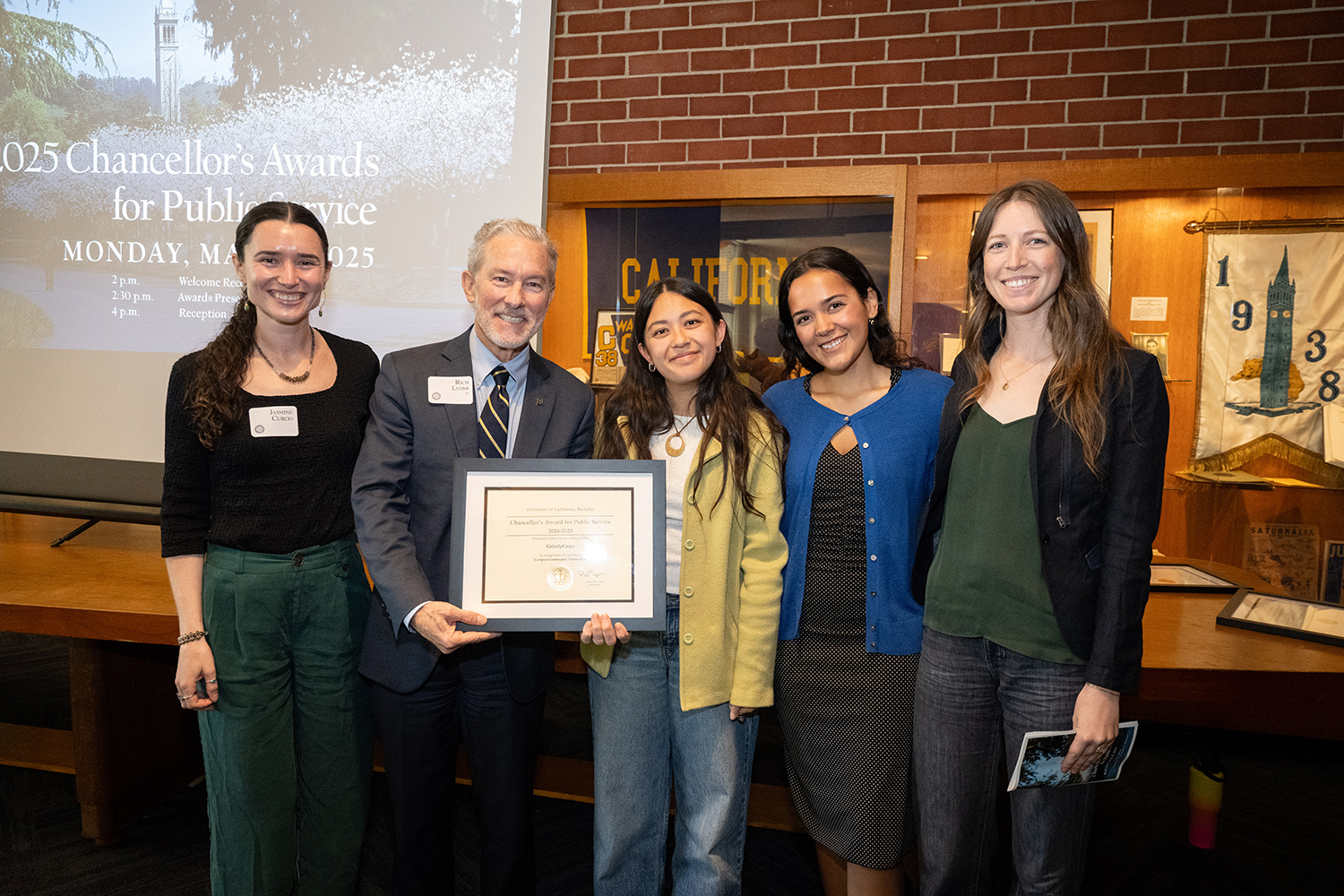
And those fellows have continued to make an impact on the effort to combat climate change after leaving the program: According to a GrizzlyCorps survey, 81% of its alumni are currently working in a natural resources field related to forestry, fire resilience, agriculture, food systems, watershed health, and environmental education. A third were hired by their service sites, and 14% have gone on to graduate school in related fields — evidence that the program is succeeding in its goal of building a rural climate workforce pipeline.
GrizzlyCorps has been so successful that it was recognized in May with the UC Berkeley Chancellor’s Award for Campus-Community Partnership, part of a group of honors that highlight students, professors, staff, and organizations that embody the school’s commitment to advancing social change through public service.
“It was a huge honor to be acknowledged for all the work that’s been put into this program,” says Jasmine Curcio, GrizzlyCorps’ program administrator and a former fellow. “Ultimately, I think that award also goes to all of the alumni in our program, our current fellows, and our host sites — those relationships are so meangingful to all of us, and we’ve been able to see that accumulation of the work that’s been built throughout California, which is such a beautiful thing.”
This prestigious accomplishment was tempered by a jolt of bad news delivered just a few weeks earlier: The Department of Government Efficiency’s wide-ranging budget cuts included slashing $400 million in AmeriCorps grants, gutting GrizzlyCorps’s funding.
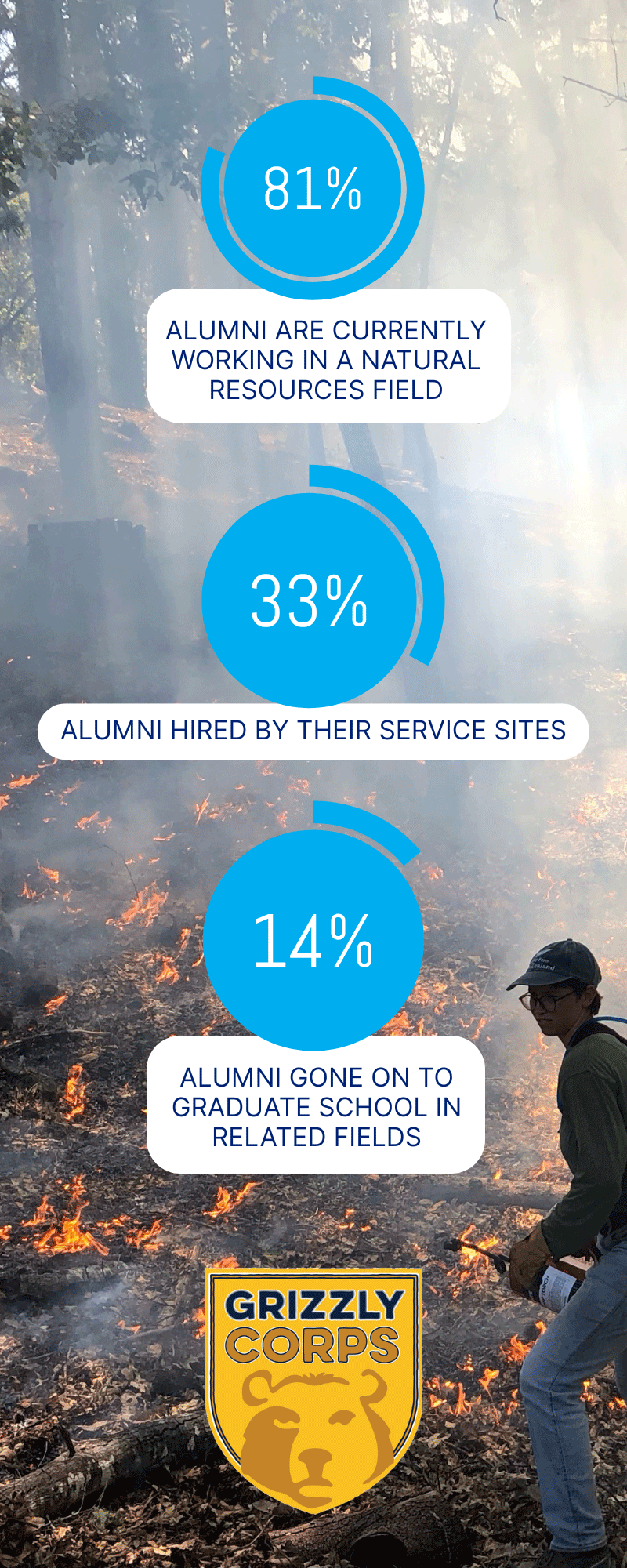 “It was a disembodied moment to be getting awarded when the rug was just pulled out from under us two weeks prior,” adds Program Coordinator Cindy Pace, who was a GrizzlyCorps fellow in 2022-23 at the Resource Conservation District of the Santa Monica Mountains, doing wildfire mitigation in communities that included the Palisades and Altadena areas ravaged by fire earlier this year.
“It was a disembodied moment to be getting awarded when the rug was just pulled out from under us two weeks prior,” adds Program Coordinator Cindy Pace, who was a GrizzlyCorps fellow in 2022-23 at the Resource Conservation District of the Santa Monica Mountains, doing wildfire mitigation in communities that included the Palisades and Altadena areas ravaged by fire earlier this year.
Staying focused
The organization will keep its current cohort of fellows on through the end of their commitment this summer, and has enough funding to pay two staffers through next year as well. But GrizzlyCorps is pausing the recruitment of new fellows through at least early 2026 to decide how to proceed without the AmeriCorps partnership.
Leaders are sending a strong message: Like climate change, GrizzlyCorps isn’t going anywhere.
“We know what our program does, and we know that it works, so we really don’t want to change the model,” Director Eliza Munger says. “We want to keep GrizzlyCorps focused on community needs, stay with our focused areas that we serve, and continue to be a great workforce development program, focusing on building up the next generation of climate leaders.”
Project Climate Director Ken Alex, a former senior official in the administration of then-Gov. Jerry Brown, modeled GrizzlyCorps after CivicSpark, a Governor’s Initiative AmeriCorps program founded in 2014.
“We started GrizzlyCorps because of the needs of rural communities and their essential role in responding to climate change. That need and role hasn’t changed,” Alex says. “We are committed to the program and will find a way to continue. We are grateful for the support of the Chancellor and the law school and the connection to UC Berkeley.”
Munger, who had already planned to leave her role to pursue a graduate degree in sustainable forest management at Oregon State University, says administrators are already looking at strengthening existing partnerships like the relationship with the UC Agriculture and Natural Resources program, which links the UC system’s campuses to communities around the state.
“We’re also in talks with a few departments on campus. There’s some great overlap: They have partnerships and ideas, and so do we,” she says. “We may be able to lean further into UC Berkeley relationships with some of the labs and centers we’ve shared ideas with but never had a formal relationship with.”
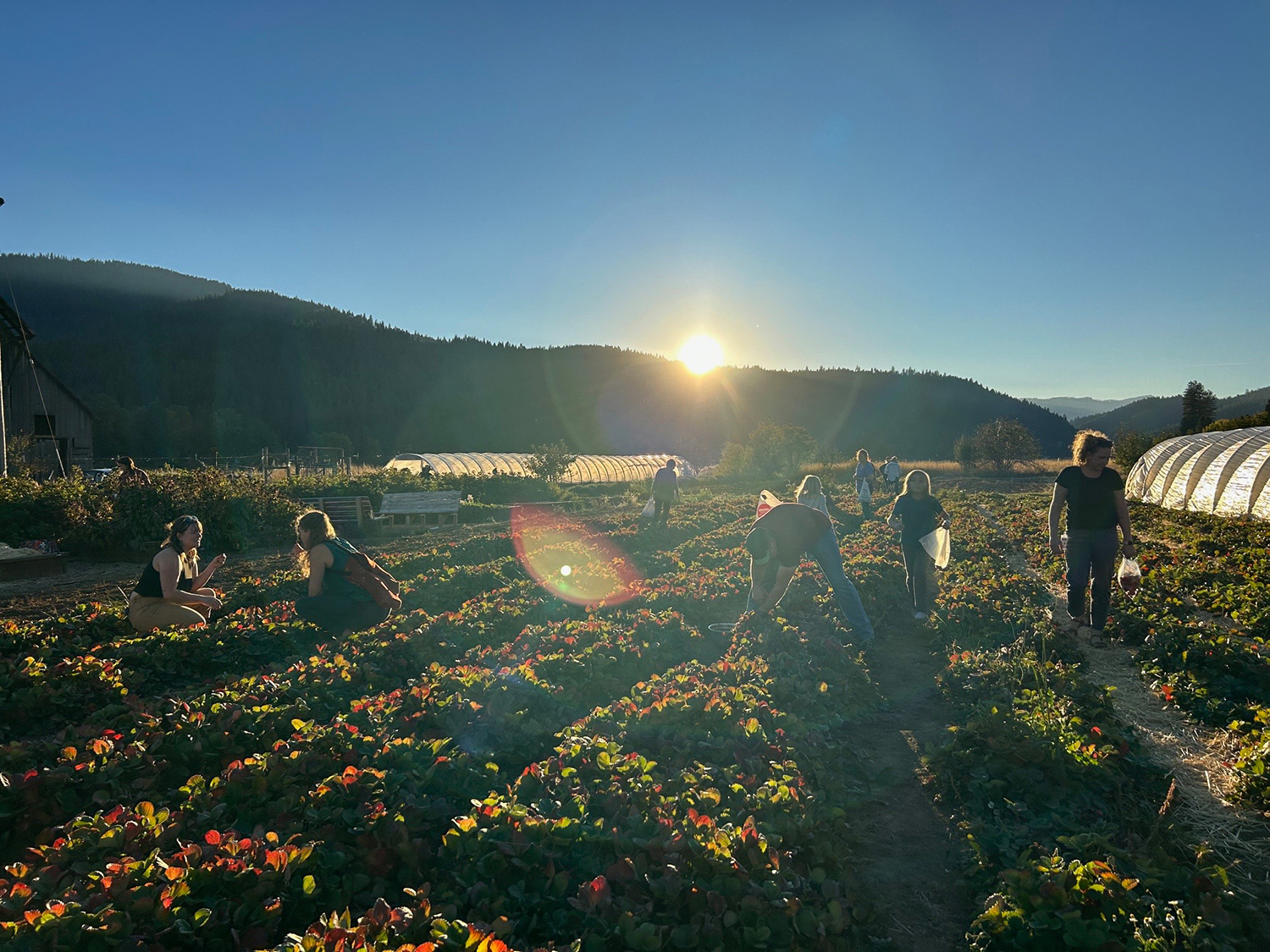
GrizzlyCorps is also planning to raise money to relaunch the program once those new partnerships are in place. Because even if the funding structure changes, the underlying mission — and impact — won’t.
“Obviously the climate crisis isn’t going anywhere, and with this program getting taken away, a lot of those community needs are no longer going to be met,” Pace says. “Clearly the wildfires are not going anywhere. Drought is not going anywhere in California, and we need people on the ground that are doing that direct impact work.
“That’s why we all joined GrizzlyCorps in the first place: We care about the climate, about California, and about the people who live here.”
The organization is also collecting stories from program alums, who rave about the experience, calling it “wonderful,” “valuable,” and “inspiring” as well as a key driver for their future in the many fields GrizzlyCorps encompasses.
“There will be a day that you think to yourself, ‘Gosh, I cannot believe I am getting paid to do this,’” says Brian Pimentel, a fellow in the inaugural 2020-21 cohort who’s now the agriculture program manager at the Placer County Resource Conservation District in Auburn, Calif.
Getting things done
Munger also wants the program to hold on to the service-oriented but flexible qualities AmeriCorps encourages. She recounts that when the Los Angeles-area fires happened, old and new GrizzlyCorps connections fused. Fellows Kiara Bremner and Josephine Cacciato were placed with the brand-new Santa Monica Mountains Fire Safe Council, whose executive director, Pauline Allen, was herself a program alum.

Bremner and Cacciato paused their planned work and spent weeks supporting the on-the-ground efforts.
“That was the beautiful thing about AmeriCorps: You could shift the focus, you could deploy someone to an emergency,” Munger says. “Hopefully, we can continue that with GrizzlyCorps.”
While the timing of the Chancellor’s Award was undeniably bittersweet, she says it was wonderful to not only be honored by UC Berkeley but also to showcase “how many departments across campus keep us running.”
“It was a full-circle moment to see that the university recognizes us and what we do,” Munger says. “We are the only full-time AmeriCorps program that exists at UC Berkeley, and we have been the only one for the past five years. I’d love to see other universities be able to embrace this model.”
